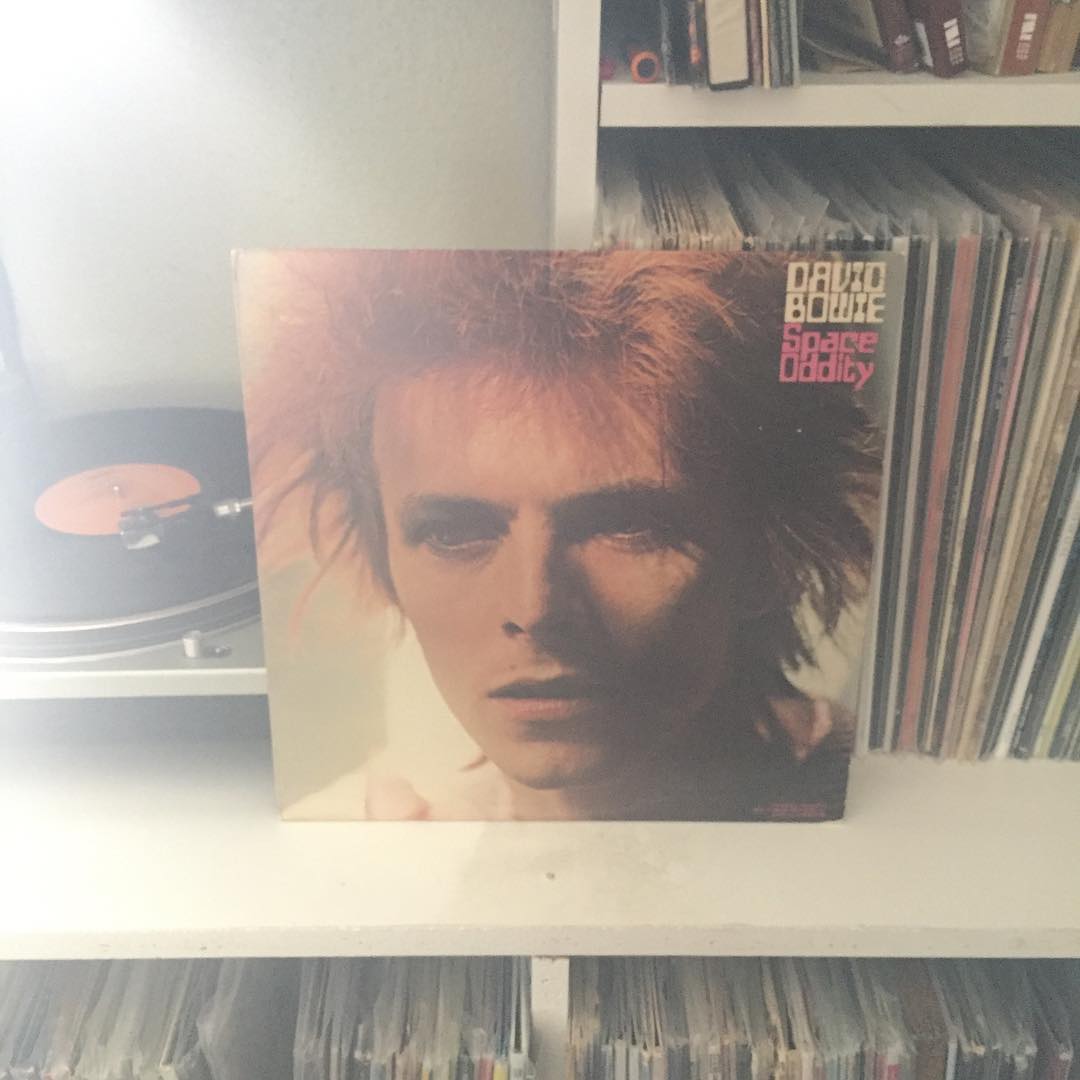
Space Oddity is not David Bowie’s first album, but it is the first Bowie album anyone cares about.
Its title track, with its tragic astronaut and hand clap coda is still well known, and is still the first song anyone thinks of when they think of Bowie. This album would be notable even if just for its single, but the amazing thing is that the rest of the album doesn’t dwell in its shadow.
There’s the stomping and wailing “Unwashed and Somewhat Slightly Dazed,” the tender “Letter to Hermione,” the ten-minute prog-folk opera “Cygnet Committee…” and that’s just side one. The 12-stringed space folk on display here would go on to inspire Beck, the Flaming Lips, Thurston Moore, and many more.
For all of the reverb and psychedelia and drama, there’s a huge Dylan influence to be found. Bowie’s lyricism is long-winded and obtuse and often reminiscent of Dylan’s early surrealism. Bowie’s voice, similarly, sometimes adopts a tune-less wail much like the folk legend.
Most important, though, is what Bowie would go on to mean in the musical landscape. The Beatles would split, the Stones would slip in quality, and Dylan would languish in critical failure, and David Bowie, this glamorous, pansexual alien would traipse through different fictions and characters, bringing a post-modern self-awareness to music—the world’s first meta-rock star. But on this album, released also under the title Man of Words, Man of Music, the character on display is David Bowie himself, a fresh-faced folk singer with aspirations of outer-space. If only he could see the journey his career would take him on.